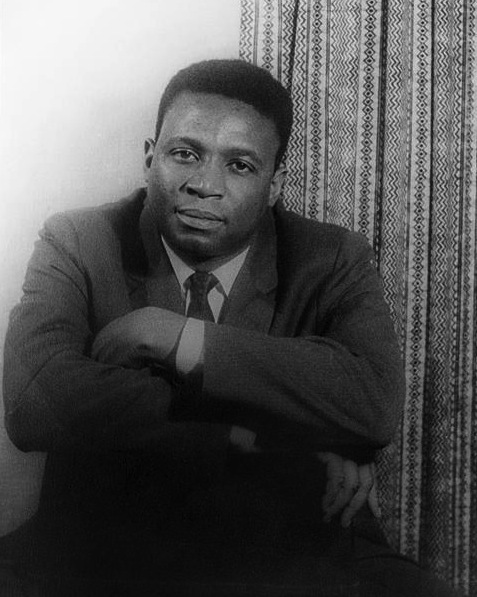Julian Hudson Mayfield was best known as an American actor, director, writer, lecturer, and civil rights activist. Mayfield was born on June 6, 1928, in Greer, South Carolina, and was raised from the age of five in Washington. He attended Paul Laurence Dunbar High School and then joined the U.S. Army in 1946. After his discharge, he studied briefly at Lincoln University in Pennsylvania and later at the Jefferson School of Social Science in New York (1951–1954). He also spent several years studying acting and drama at the Paul Mann Actors Workshop, one of New York’s leading theater schools in the 1950s.
Mayfield’s first appearance on the stage was in the 1949 production of City of Kings in the role of Father Martin de Porres, an eighteenth-century black Peruvian priest later consecrated as a saint in the Catholic Church. Mayfield’s big break in the theater came later that year when, as an understudy for the role of Absalom Kumalo in musical Lost in the Stars, he stepped into the role after the lead actor, Sidney Poitier, went to Hollywood to star in his first movie No Way Out. The play was based on the novel Cry the Beloved Country by the white South African writer Alan Paton. Mayfield also wrote, produced, and directed several off-Broadway productions between 1949 and 1954.
In his unpublished autobiography, Which Way Does the Blood River Run, Mayfield claimed he joined the Communist Party in the late 1940s, shortly after coming to New York. He was a member of various left-wing and communist-front organizations, including the Committee for the Negro in the Arts (CNA).
In 1956 he met and married a young Puerto Rican activist and physician, Dr. Ana Livia Cordero. The couple moved to Puerto Rico where Mayfield completed his first two novels, The Hit and The Long Night. In 1960 Mayfield visited Cuba with a group of intellectuals who were guests of Fidel Castro’s government for the first anniversary of the Cuban revolution.
In 1961 Mayfield and his family moved to Ghana where he soon became the unofficial leader of the small community of African American exiles. Through this role, he enjoyed direct access to President Kwame Nkrumah. In 1964 Mayfield was the host of Malcolm X’s visit to West Africa and later established the international branch of Malcolm’s Organization of Afro-American Unity (OAAU). While living in Ghana, Mayfield also edited a collection called The World Without the Bomb in 1963. He lived and worked in Ghana until January 1966 before relocating to Ibiza, Spain, just prior to the 1966 coup which deposed Nkrumah.
Mayfield returned to the United States in May 1967 and accepted a job teaching at Cornell University. Jules Dassin invited him to rewrite the script for the play The Betrayal, which would later be made into the 1968 film Uptight! Mayfield starred as Tank Williams, the police informant. The film was a financial failure but a precursor for the explosion of black films in the late 1960s and 1970s.
In 1971 Mayfield moved to Guyana and worked for the government of President Forbes Burnham in the attempt to modernize his recently independent nation. As internal politics became more heated, the nation’s economic fortunes suffered, and Mayfield left the country in 1975. Mayfield won a Fulbright fellowship and taught in West Germany and Turkey in 1976. He later took a job as a lecturer at University of Maryland, College Park, and as the writer-in-residence at Howard University.
Julian Mayfield died on October 20, 1984, of cardiac arrest in Takoma Park, Maryland. He was 56 years old.

